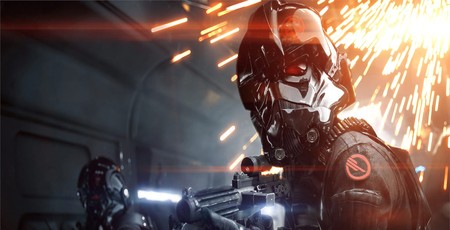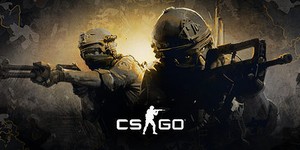Gambling Commission says loot boxes aren't within its purview
November 27, 2017 | 09:58
Companies: #ea #electronic-arts #gambling-commission

The Gambling Commission, the regulatory body for the UK's gambling industry, has weighed in on the 'loot box' controversy in gaming - by claiming that the in-game items acquired 'cannot be cashed out' and therefore are not something over which it has legal control.
While by no means a new concept, so-called 'loot boxes' - randomly or semi-randomly selected rewards which can be purchased using in-game currency, which in turn can be purchased for real-world cash - have become a hot-button topic of late, culminating in a panicked, last-minute yet temporary removal of real-money microtransactions from EA's Star Wars: Battlefront II. Those who criticise the inclusion of loot boxes in games as a form of gambling, though, are still very much on the warpath - but it seems the UK Gambling Commission won't be stepping in any time soon.
'A key factor in deciding if that line [between what is and what is not gambling] has been crossed is whether in-game items acquired "via a game of chance" can be considered money or money's worth,' the regulator explains in a blog post published late last week. 'In practical terms this means that where in-game items obtained via loot boxes are confined for use within the game and cannot be cashed out it is unlikely to be caught as a licensable gambling activity. In those cases our legal powers would not allow us to step in.
'However, many parents are not interested in whether an activity meets a legal definition of "gambling." Their main concern is whether there is a product out there that could present a risk to their children. We are concerned with the growth in examples where the line between video gaming and gambling is becoming increasingly blurred. Where it does meet the definition of gambling it is our job to ensure that children are protected and we have lots of rules in place, like age verification requirements, to do that. Where a product does not meet that test to be classed as gambling but could potentially cause harm to children, parents will undoubtedly expect proper protections to be put in place by those that create, sell and regulate those products. We have a long track record in keeping children safe and we are keen to share our experiences and expertise with others that have a similar responsibility.'
The proclamation echoes the findings of a position paper (PDF warning) published last year which concluded that 'where in-game items or currencies which can be won, traded or sold can be converted into cash or exchanged for items of value, under gambling legislation they are considered money or money’s worth.' Thus a game like Star Wars: Battlefront II, where the in-game rewards are - officially, at least - not transferable between accounts or redeemable for real-world cash does not constitute gambling activity which would come under the Commission's purview.
The furore over loot boxes may yet prove short-lived: Although sales of EA's Star Wars: Battlefront II appear to have been impacted by the negative press, with gamers sharing images of boxes remaining on otherwise empty shop shelves following the Black Friday sales period, the game has sat happily near the summit of the UK top ten charts since launch while a petition calling for government intervention has raised fewer than 20,000 signatures so far.

MSI MPG Velox 100R Chassis Review
October 14 2021 | 15:04









Want to comment? Please log in.